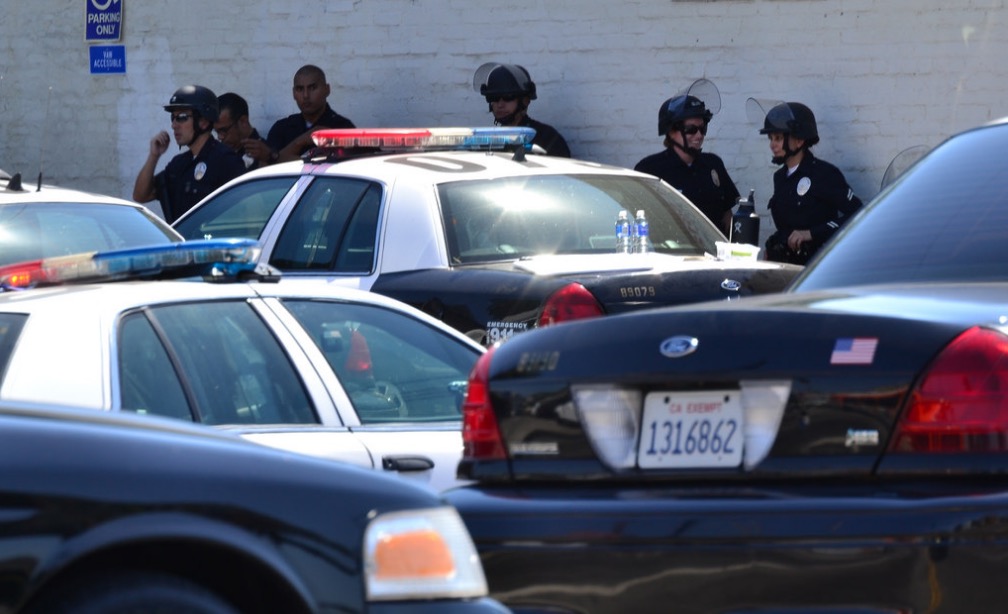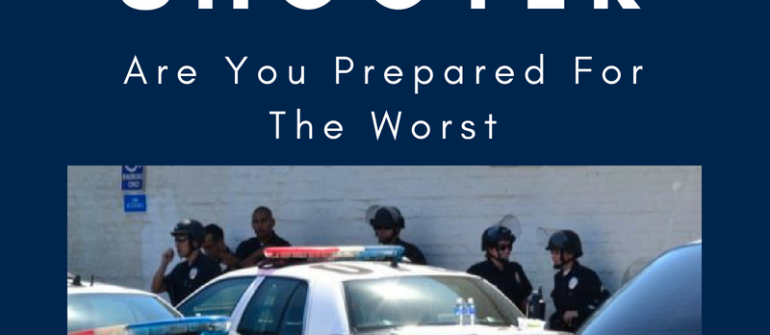 A gunman killed 49 people and wounded 53 at a crowded gay nightclub in Orlando, Fla., early Sunday morning in the deadliest mass shooting in American history. The shooter was a lone gunman. Just last year, 5 young men were arrested for driving recklessly through a Pennsylvania Jewish summer camp, firing paintballs and spewing anti-Semitic slurs. It’s not too hard to imagine how these angry men could have taken their hate to the next level. In Norway, on July 22, 2011, two political extremists and sequential lone gunmen killed 77 at a Workers Youth League-run summer camp.
A gunman killed 49 people and wounded 53 at a crowded gay nightclub in Orlando, Fla., early Sunday morning in the deadliest mass shooting in American history. The shooter was a lone gunman. Just last year, 5 young men were arrested for driving recklessly through a Pennsylvania Jewish summer camp, firing paintballs and spewing anti-Semitic slurs. It’s not too hard to imagine how these angry men could have taken their hate to the next level. In Norway, on July 22, 2011, two political extremists and sequential lone gunmen killed 77 at a Workers Youth League-run summer camp.
Every time a mass shooting occurs, we recognize that no one is immune from this danger, no matter your religion, race, gender-identity, sexual orientation or sex. Everyone needs to be prepared.
The tragic shooting in Orlando once again has drawn national attention to security. As camp season begins, we bring you Alan Cooper’s 2013 Broad & Bright, which outlined preventative measures camps can take to improve security.
On June 4th AMSkier presented a forum on camp security. With just days to go before the start of camp, a packed house spent 90 minutes with Wayne County, Pennsylvania District Attorney Janine Edwards, Wayne County Detective and former Pennsylvania State Police Barracks Commander Lieutenant Jamie Schultz, AMSkier General Counsel Alan Cooper, and AMSkier Partner Norman Friedman, gathering ideas for addressing security issues for the summer of 2013 and beyond.
All agreed that the main goal is to make your camp an unattractive target. The most likely form of security issue – and the one most easily preventable – comes from an individual with a specific ax to grind against you or someone in your camp, or small local group looking for some excitement. There is still time to take action prior to the 2013 camp season to minimize this risk by considering the following:
- HAVE A PLAN so that everyone knows what to do in the event of an emergency. Of course a plan has no value if your staff is not aware of it and has not practiced its execution. Just as you have fire drills or tornado drills, you should have “intruder drills.” At a minimum the plan should include who goes where, who calls who, how is the rest of the camp notified, where are the safest places to take the children, and anything else unique to your setting.
- Posting your property – The perimeter of your property should be posted. Camps in remote areas should post signs leading up to your property giving the public fair notice that they are about to enter private property.
- Install video cameras at strategic points. Include signs warning would be trespassers that the area is under surveillance.
- Install some form of entry gate.
- Utilize twenty-four hour security. This should include at least one person at the gate and one person roving the property. All security personnel should have at least two forms of communication.
- Using armed security personnel? Whether armed with firearms or less lethal weaponry such as tasers or pepper spray, this important decision should be discussed at length as there are substancial risks to doing so. In addition most states require extensive training and certifications before security personnel can be armed.
- Establish visitor policy and procedures to take notice of any strangers on campus and to take appropriate action. For staff this could include a friendly encounter asking if they can help the person and then reporting anything suspicious. For campers it could simply mean informing his or her counselor.
- Be sure to conduct background checks on all employees, including local support staff.
- Enlist the support of your neighbors. Your neighbors are the eyes and ears of the community and should not feel bashful about calling you to report anything that appears out of the ordinary. Of course this requires taking steps to ensure good relations in your community.
- At some point each camp should enlist the aid of a professional to create its own security plan. If you have not done so for 2013, you can still implement the above steps for the upcoming summer. Make sure to undertake your diligence. A number of so called “experts” have popped up in response to the current security climate. In addition, interviewing your key personnel can provide insights into your security strengths and weaknesses.
With proper attention to security planning and particularly communication, nightmares can often be avoided. Let’s strive to make the summer camp experience happy, safe and secure for all our campers, staff and visitors.
Was This Helpful? Get More Content Like This!
Join Our Broad & Bright Mailing List By Signing Up Below
AMSkier Clients already receive these articles and much more.


